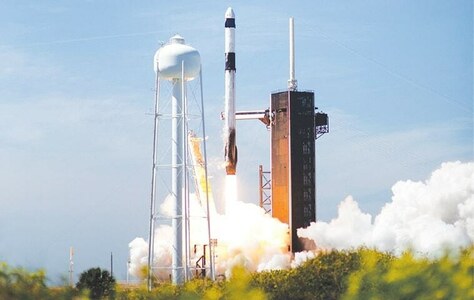TOKYO: Japan became the fifth country to put a spacecraft on the moon on Friday, but the probe was not generating solar power, its space agency said, during a mission to prove a “precision” landing technology and revitalise a space programme that has suffered setbacks.
The Japan Aerospace Exploration Agency (JAXA) said its Smart Lander for Investigating Moon (SLIM) landed on the moon’s surface at 1520 GMT and re-established communication with earth, but its solar panels were not able to generate electricity, possibly because they are angled wrong.
“The SLIM is now operating only on its battery, and we are prioritising the transfer of its data onto earth,” Hitoshi Kuninaka, the head of JAXA’s research centre, told a press conference.
Despite “life-sustaining treatments” such as turning off its heater, SLIM’s battery lasts only for “a few hours”, so JAXA will maintain the status quo rather than take risky actions. The agency hopes a shift in the sunlight’s angle will hit the panels in a way that can restore its functions, Kuninaka said.
“It takes 30 days for the solar angle to change on the moon,” Kuninaka said. “So when the solar direction changes, and the light shines from a different direction, the light could end up hitting the solar cell.”
Dubbed the “moon sniper”, SLIM attempted to land within 100 metres (328 feet) of its target, versus the conventional accuracy of several kilometres, a technology JAXA says will become a powerful tool in future exploration of hilly moon poles seen as a potential source of oxygen, fuel and water.
“Looking at the trace data, SLIM most certainly achieved a landing with 100-metre accuracy,” Kuninaka said, although adding it will take about a month to verify it.
Published in Dawn, January 20th, 2024














































Dear visitor, the comments section is undergoing an overhaul and will return soon.